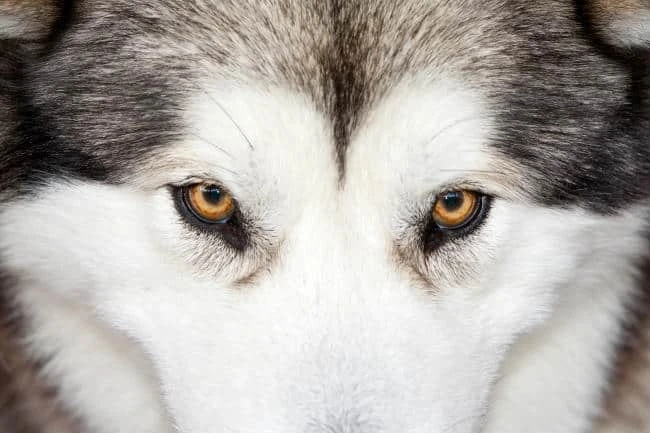The Dog Owners Guide To Canine Kidney Failure

Canine Kidney failure is a devastating illness for any dog or puppy as it basically means that your dog’s kidneys are not effectively removing the waste products from your dogs body – this is because your dog’s kidneys have stopped working properly. Read on to discover the signs and symptoms of this illness, how it is diagnosed and the best treatment.
Kidney disease comes in two forms – Acute and Chronic. With Acute renal failure your dog’s kidney problems can appear very suddenly. However, with Chronic renal failure the disease can take longer to appear causing damage over a longer period.
The term ‘Kidney Disease’ normally means that 75% of your dog’s organs have been affected and damages.
What are the causes of canine kidney failure?
There are a variety of illnesses that can lead to kidney disease including…
Autoimmune kidney disease….The kidney is actually a very sensitive organ which can be prone to immune diseases. It is important to mention that deposits of proteins and cells can interfere with the efficiency of the kidneys reabsorption and filtering system.
Glomerulonephritis… occurs when the glomerulus becomes inflamed. This is part of the dog’s vital filtration system. The glomerulus can become inflamed due to Cancer or because of bacterial infections. The glomerulus can also become inflamed due to deposits of antibodies or antigens caused by immune diseases. This will then lead to the kidney not being able to filter out or resorb protein effectively.
Just so you know the glomerulus is part of of the kidney that helps to filter the blood.
Amyloidosis… is a type of kidney disease that is more common in certain breeds including Shar-Peis. The symptoms of this condition can include painful and swollen joints, kidney disease and fever. Amyloidosis is caused by the protein ‘amyloid’ being deposited along the kidney’s tubules. This will lead to renal disease and also to the kidney’s not functioning properly.
Canine kidney failure will normally affect older dogs especially dogs that are aged between 12 years of age and 14 years and it is actually a more common diagnosis found in older dogs.
The most common causes of this condition is due to age (as previously discussed), poisoning, the big ‘C’ (Cancer), due to congenital factors i.e. it has been inherited, parasitic infections, trauma possibly through a car accident or other trauma, negative and toxic reactions to specific medication, inflammation, disease that affects the autoimmune system and finally kidney disease may occur as a result of a viral or bacteria infection.
What are the Symptoms of Kidney Disease?
The symptoms of this condtion can vary from dog to dog but some of the symptoms can include…
1. You may start to notice that your dog is urinating more often. Although dogs with kidney failure do tend to eliminate more urine through their bladder they are not actually getting rid of all of the waste products through the urine. This condition is referred to as Polyuria. However, another sign of kidney disease is the reverse symptom where your dog might not urinate as much as he or she should – this condition is referred to as Oliguria.
2. Another condition that is seen in dogs with kidney failure is where blood appears in the urine – you might notice this when you take you dog for a walk or if he has an accident in the House. If you spot any blood i your dog’s urine take him straight to the vet. This condition is referred to as Hematuria.
3. Another symptom of canine kidney failure is a complete lack of urination this is referred to as Anuria.
4. You might notice that your dog is experiencing behavioral changes – you will be the first to notice this as you know your pooch better than anyone. One of the first signs of a behavioral change is tiredness and lethargy – you might notice that your pooch seems less keen for a walk or really tired after exercise, your dog might even refuse to go for a walk.
5. Make sure that you keep a close eye on your dog’s eating habits as one of the symptoms of kidney disease in dogs is a decreased appetite and weight loss.
6. Your dog’s coat might also start to look as though it has been affected – it might lose it’s quality and not look as good as it did. If you are not sure look at old photographs as this might give you some idea – also by visiting your vet as they will also be able to determine the quality of yoir dog’s coat and whether it has been affected by a medical problem.
7. Your pooch might start to experience bouts of diarrhea – this is a symptom of a number of canine health problems but taking your pooch to the vet will help to come to an accurate diagnosis.
8. Watch how your dog walks as he may find it painful or appear hunched over.
The symptoms of kidney failure in a nutshell
A dog with kidney failure may drink large amounts of water and start passing large amounts of diluted urine. However, it is also possible for an affected dog to drink large amounts of water but actually pass very little urine. Treating the condition may involve the vet flushing the kidneys and then prescribing antibiotics to help fight any infection. The vet may also recommend vitamins to replace the vitamins lost during the flushing process. Medications to encourage red blood cell production may also be prescribed which will also help to fight Anemia which is a common problem associated with kidney damage.
Preventing kidney failure in dogs
Apart from the obvious reasons i.e. unless you are a vet yourself you will be unable to treat your dog’s health problems, it’s crucial to take your dog to the vet. It is so important and that is when your dog has a physical examination not only will the vet be able to look at past medical notes but he or she will notice physical symptoms that you might not…some of the physical symptoms might include…
1. The kidneys might be smaller or an unusual size – they might also be painful when touched by the vet.
2. Your dog might have ulcers around and inside the mouth (especially on the gums and tongue) – this is one of the signs of canine kidney failure. The gums might also appear pale – this might mean that your dog is experiencing Anemia.
3. Although bad breath is fairly common in dogs and puppies – this is also a sign of kidney disease. The reason that bad breath is a common sign of kidney failure is due to the toxic substances building up in your dog’s blood stream.
4. Your dog’s joints and limbs might become inflamed this is due to a build up of fluid – this can also cause swelling in the abdomen. Inflammation of the abdomen due to a build up of fluid is referred to as Ascites. Inflammation affecting the limbs also caused by fluid accumulation is referred to as Subcutaneous Edema.
5. Another symptom of canine kidney failure that can be diagnosed through a physical examination is a softening of your dog’s bones.
6. Your dog’s blood pressure may also be affected i.e. high blood pressure. This can result in eye problems that directly affects your dog’s retina.
How is canine kidney failure diagnosed?
As previously mentioned and something that we advocate throughout our site is that your dog or puppy should be taken to a vet if you have any concerns at all about your dog’s health as this is the only way to get an accurate diagnosis.
The vet will start the process of diagnosing kidney disease by undertaking a thorough physical examination and then will ask you lots of questions about how he has behaving and any unusual symptoms that you may have noticed being the owner and person who knows your dog better than anyone.
The main methods of diagnosis for canine kidney failure will involve the vet undertaking urine analysis and blood tests. By examining your dog’s blood the vet will be able to conclude how much waste and toxins are present in the blood. By undertaking these tests the vet will be able to determine how severe the kidney disease and whether your dog actually has this condition – this is referred to as ‘Renal Evaluation’.
Through these tests the Vet will be able to test for the condition and consistency of your dog’s urine and the BUN levels (this acronym refers to the Blood, Urea, Nitrogen and Creatinine levels). A dog that is suffering from kidney disease will have urine that is more diluted – actually the urine has a similar concentration that is found in distilled water. Through the urinalysis the vet might also find signs of blood, bacteria, and protein.
How is canine kidney failure treated? Unfortunately renal failure is very difficult if not impossible to cure – although it can be treated to make your dog’s life a little more comfortable. The main reason that this condition is so difficult to cure is because by the time a dog is seen by a Vet your dog’s kidneys may have lost as much as 75% of it’s ability to function.
The vet may treat the condition with advice on a better diet as a this is vital when treating a dog with kidney problems especially a diet that is low in phosphorus and sodium. Although some people recommend a diet that is low in protein this can cause vomiting in dogs.
It is also vital that a dog suffering from this condition has access to plenty of fresh water. Although in very rare cases a kidney transplant might be an option the most common medical intervention is through fluid therapy – this might involve IV fluids for a period of up to ten hours. Try to avoid some dry dog food as it might be low in water which is vital for hydration.
What do the kidneys do?
Every dog has two kidneys one on either side of the body (they are found near the spinal column tucked up just in front of the hind legs. The kidney is actually shaped like a kidney bean and are the main organs of the excretory system. Both of these vital organs help to remove any waste or toxins that are present in the blood and will also take up some of the nutrients and fluid that pass through them.
Depending on whether your dog has any health problems and how much water your pooch drinks this will determine whether the urine is concentrated or diluted. The urine will the pass from the kidneys down tubes, the ureters and finally into the dog’s bladder.
Canine kidney failure can result in vomiting due to a build up of toxins and although dogs can be born with congenital kidney defects your pooch is actually able to function pretty well with just one kidney.
Unfortunately kidney disease is one of the most common problems to affect older dogs (Cancer is the most common). As dogs get older so do the kidney’s which results in them being less efficient at removing any waste products (this then leads to the waste building up instead of being passed out in in the urine).
Kidney function & older dogs
One of the most common health problems to affect older dogs is a reduced kidney function. Unfortunately this is often a degenerative condition so treatment may involve slowing the progression and managing the signs and symptoms rather than finding a cure (although early treatment can be effective).
A dog experiencing kidney problems will need to be on a diet that includes high quality protein and is low in in sodium (salt) and is restricted in phosphorus. There are also herbal supplements that can support the kidneys including dandelion which works as natures own diuretic. Nettles and clevers are also highly beneficial for optimum kidney function.
It is also worth mentioning that kidney function can also lead to a loss of water soluble vitamins such as B complex and Vitamin C. So an increased supply of these is beneficial. However, the most well known and successful homeopathic treatment for kidney problems is Berberis vulgaris.
It is also worth mentioning that Acupuncture is considered an effective treatment for kidney problems.
Natural remedies for dogs with poor kidney function
Nephritis – is a condition that can occur. This is when the kidneys become inflamed and is normally caused by a bacterial infection called Leptospira canicola. There are two types of Nephritis including Acute and Chronic. The chronic type is often seen in older dogs where the infection gradually destroys the affected dog’s kidney tissue. The acute type will normally start very suddenly. The affected dog will normally have a high temperature and may have a painful back where the kidneys are located.
Below area some natural remedies for dogs experiencing Nephritis…
Aconitum Napellus 6c is a great homeopathic remedy for treating the early stages of infection. It can also reduce the chances of the infection damaging the kidneys.
Apis Mellifica 30c is another homeopathic remedy that can be prescribed to dogs experiencing nephritis. This remedy helps to reduce any swelling which is normally associated with infected kidneys.
Arsenicum Album 30c can be prescribed to dogs that are drinking little and often. It can also be beneficial for dogs that are experiencing diarrhea and vomiting.
Belladonna 30c can sometimes be prescribed to dogs that are experiencing acute infections and if the urine is particularly dark in color.
Berberis Vulgaris 30c is a great homeopathic remedy for dogs that are experiencing pain in their lower back.
Natrum Muriaticum can be used to treat dogs that are thirsty and are losing weight.
Thuja Occidentalis 6c can alleviate pain around the kidneys and also relieve any pain when the affected dog urinates.
Urtica Urens 3x can help with the flow of urine and also hep the affected dog to pass any nasty waste products.
Bach remedies can also be beneficial for dogs experiencing kidney problems. Crab apple can help cleanse the internal system and Hornbeam or Olive can strengthen a dog that appears weak or lethargic.
Did you know?
Your dogs kidneys are so effective and efficient that 75% of the working tissue can be damaged before routine testing will show any signs of kidney disease. The affected dog may also appear quite healthy displaying no outward signs of illness.
There are now tests that can determine whether a dog is suffering from ERD (end stage renal disease). This test will look for small amounts of a protein called albumin in the dog’s urine. This test is extremely accurate and sensitive in diagnosing and catching kidney failure in it’s early stages.
If you found this page useful you may also be interested in our page on kidney stones.
Dog Health Problems Online > Canine Kidney Failure





